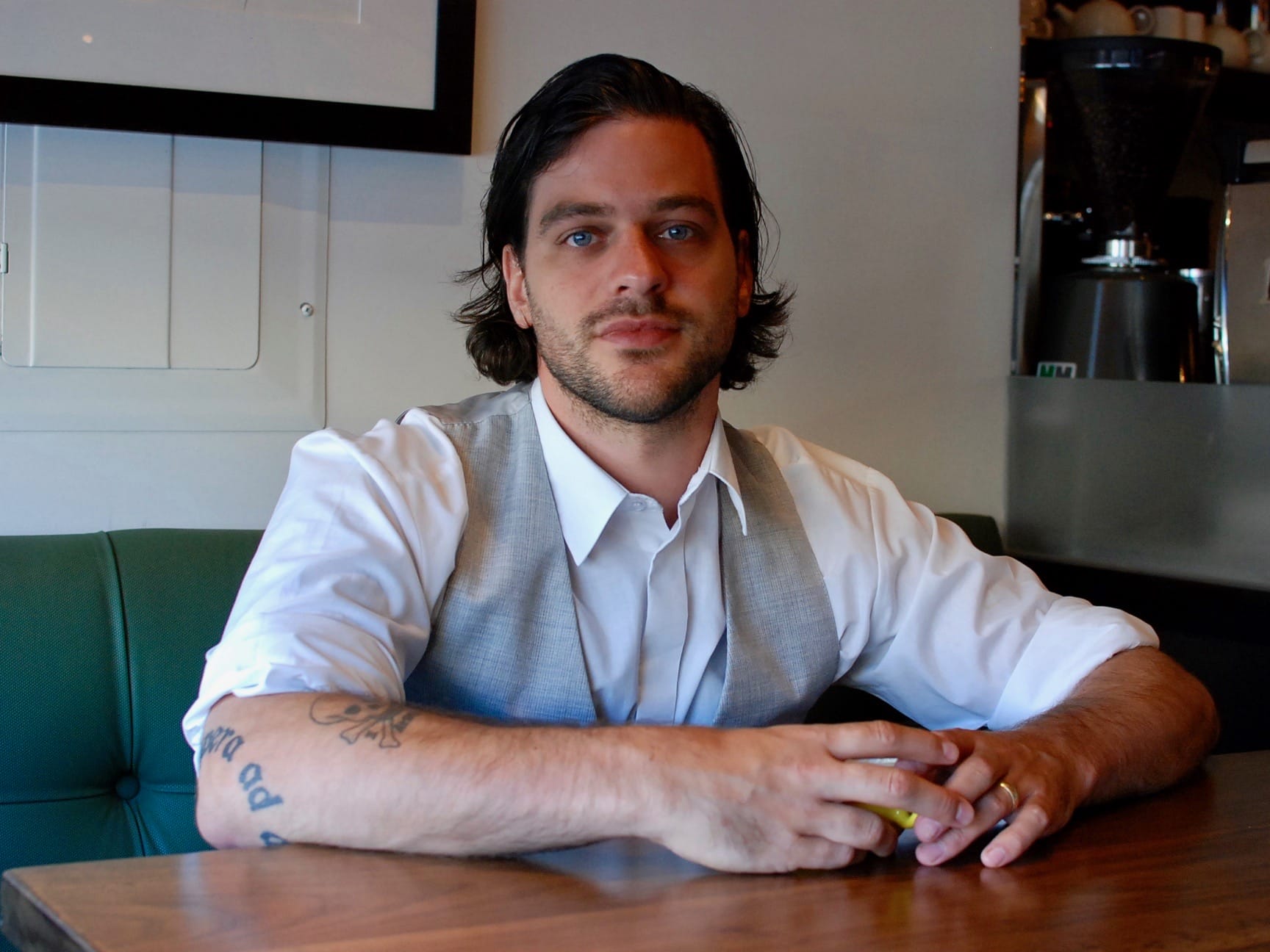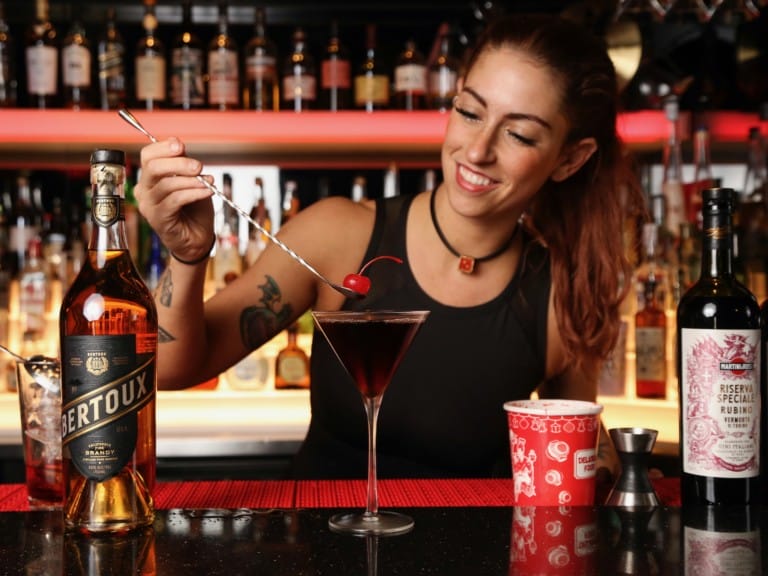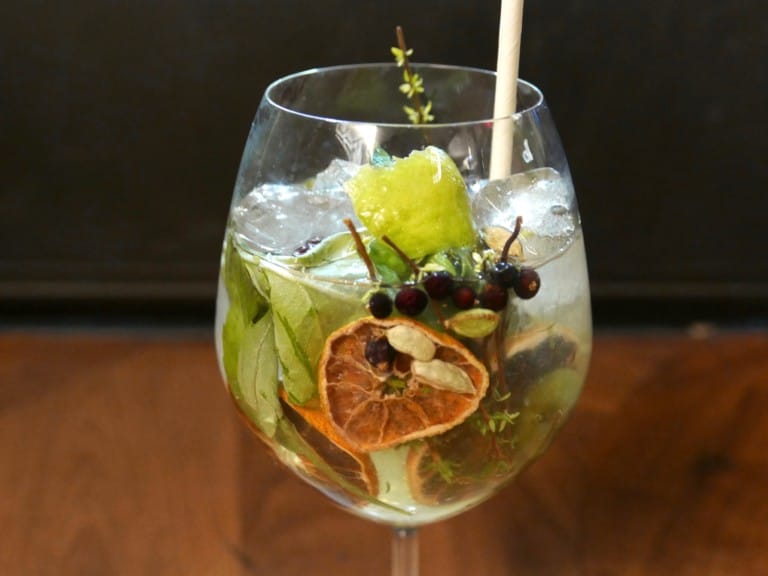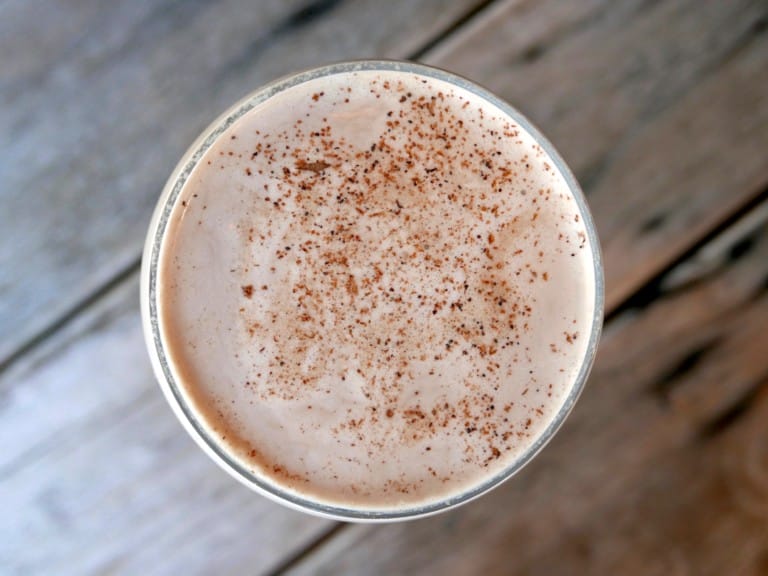Michael Sager-Wilde took a circuitous path to San Francisco. He grew up in Switzerland and was working on his Master’s, but shifted career paths by moving to London. He started working in bars and eventually started ascending the chain for The Match Bar Group, led by Jonathan Downey, the man who convinced Sasha Petraske and Dale DeGroff to approximate Milk & Honey in London. That’s the prestigious bar that Sager-Wilde ended up running before moving to San Francisco. He now oversees a bar program that Eric Alperin helped install at Locanda, which is where we met on July 6. In a booth facing Valencia Street, Sager-Wilde better explained his background and approach.
Josh Lurie: You were saying you only have one approach with cocktails?
Michael Sager-Wilde: That’s the way I was taught back in London, which is kind of what we call the Milk & Honey way. There was a big company, and that’s all I learned. I was lucky. I was with a company called The Match Bar Group in London. The company’s now changed its name, but initially it was called The Match Bar Group. It started in 1997 and it kind of kicked off a big trend in London. Every big bar evolved out of that first bar, so you can compare it to probably Bourbon & Branch, or you can compare it to Death & Co., etc. Just small and influential, that spread out and kind of carried on their way.
JL: What was the first bar that you ever worked at?
MSW: The first one was called Match EC1 London, so that was in fact the first one that they did.
JL: What was the very first night like when you worked behind the bar?
MSW: I was kind of terrible, because I kind of bragged my way into it. I moved from Switzerland to London with an ex-girlfriend. I didn’t go back from holiday. I was still at university, and I was 23. All I ever did was wait tables, and I was a barista. I was quite a good barista. I could make basic things, but if you’ve been to central Europe – I don’t know if you have – but there isn’t really a cocktail culture except for Paris, and Barcelona is kind of picking up, and Berlin, but back 10 years ago there was nothing. In Switzerland, you can’t really get an array of bourbon, for example, you can’t get an array of rum. You get Four Roses, you get El Dorado for the rum and you get Gordon’s for the gin, and that’s all you could get. That’s it…They don’t call it cocktails. You call it aperitifs, you call it digestifs. You don’t really call it cocktails. When I moved to London, I ended up in this bar and it was called the Cuban, and the guys there tried to do the right thing, but they really didn’t have the right equipment…I worked in that place for three months as a server. I then went traveling with my ex-girlfriend to Asia, we then went to Berlin, and Berlin again I worked as a server in a senior position. I was always in a senior position as a server. I then moved with my ex-girlfriend from Berlin back to London in 2007, so only four years ago. I then went again to the company where I was a server, but they didn’t have any server positions, so I worked behind the bar.
JL: You went back to Cuban?
MSW: Yeah, because it made my start back in London easier. “Last year, we only did three months. This time we’re going to do it right.” So we had a job sorted out, we had an apartment sorted out, everything, and in that company, there was a guy that used to work for The Match Bar Group…I worked with four people in that bar called Cuban, and that was just one of like 100 bars, four people that were in senior positions at Match. They said to me, “Look, you seem really into this, I think you should go to Match.” That was after about a month. Then in August ’07 I drove down and London is really vast, with my resume, and it was my first resume I really typed up, because before it was always because I knew someone. I gave it to the guy who was the head bartender at this bar called EC1, and he was the most influential person of all. He ended up being the head bartender at Milk & Honey for two years afterwards.
JL: Who was this?
MSW: Fraser Chapman. He’s a big name.
JL: You consider Fraser a mentor?
MSW: Him, not as much. There was a person that trained Fraser. He’s very successful. He’s crazy, called Kevin Armstrong. He was the group head bartender, so he would oversee our whole program, everything. He would oversee Milk & Honey. We had eight award winning bars that all won Time Out awards. Time Out is big in London, really big. If you win that one, you’re in. So we had Trail of Happiness. It was a tiki bar. Compared to Smuggler’s Cove, but it was the first one in the United Kingdom, back in 2003. There was the Player that won the award. There was Milk & Honey that won it twice in a row, but it was not really our original idea. It was Sasha’s idea. Match Bar Group, they won three, one Social, one at Match EC1, and one at Match in SoHo. They were 7 out of 10 Time Out awards in a decade, which is quite fascinating given that in the whole United Kingdom, and there’s a ton of companies, they just seem to have won it all. But my guy, I would say my mentor is Kevin Armstrong. He ended up being my housemate as well.
JL: What did he teach you?
MSW: The whole method of how you build drinks, how they’re meant to look, everything about thermodynamics, which is something people don’t understand, why you have to have good ice, how to look after a space, how to talk to people, how not to talk to people, music, lights, all those things. Speed, most importantly. I think I’m really fast. I learned that from him, because when you work efficiently, you can make fast drinks. It’s different in London. Even the top bars would free-pour, so if you’re really good at free-pouring, you can develop.
JL: Do you ever free-pour?
MSW: Not here. Here it’s frowned upon. I had to change that, which is new for me. At Milk & Honey London, we used jiggers, but we still had pour spouts. Here we pour out of the bottle, and it took me two or three weeks but now I get it to a quarter-ounce accuracy, but I want to go closer. We jigger for the customer so they can see it, and also for consistency reasons. And it’s kind of a nice touch. I think no one here does it.
JL: Are you a believer in jiggering at this point?
MSW: Of course. At Milk & Honey as well because as soon as I took over Milk & Honey, that was the way. You can’t make the mistake and say that’s the only way, cause if this was a high-volume nightclub, that’s not what we would do, but we’re selling three grands worth at the bar – I don’t know what the drinks mix is – but one minute a drink, the drink goes out. Obviously you’re getting an initial hit of like 120 cocktails in the first hour, which means you only get 30 seconds per drink, which is quite hard, really hard in fact, but we have three bartenders on for that first hit, and then we send that person home.
JL: What was it like working with Eric Alperin on the cocktail program?
MSW: You know what, I had not met him before. He was at Little Branch, which is funny, because I went to Little Branch in 2008, on a trip with my company, and with Kevin. When I was at Little Branch, he wasn’t there.
JL: He was already in Los Angeles at that point.
MSW: He’s got a crazy amount of experience. What I found fascinating is how he clicked with this spot. He turned the trust that the owner put into him as a consultant into the right thing…They got him in for a month as a consultant, and I could not work here if he wasn’t here, because the made it to our standards. He noticed the ice well was too low. It would hit your knees. There was no proper freezer. There was no Kold-Draft machine. The things that I learned from Kevin, in fact they all go back to Sasha and Dale DeGroff. Dale DeGroff was our drinks consultant. We would fly him out four times a year. Sasha would come out only twice a year because he was busy, so that’s kind of our top mentors, then we had our group bartender Kevin. He would give monthly tests to make sure that we learned, which is the fascinating thing about that company. I came from a background in university where I was really used to perform on a brain level.
JL: Where did you go to school?
MSW: In Switzerland, in Bern. So I studied history there, and I studied Spanish, literature, linguistics and German, but I didn’t finish my Master’s because I went off to London, and I started my career there.
JL: Do you have a first cocktail memory, good or bad?









Leave a Comment